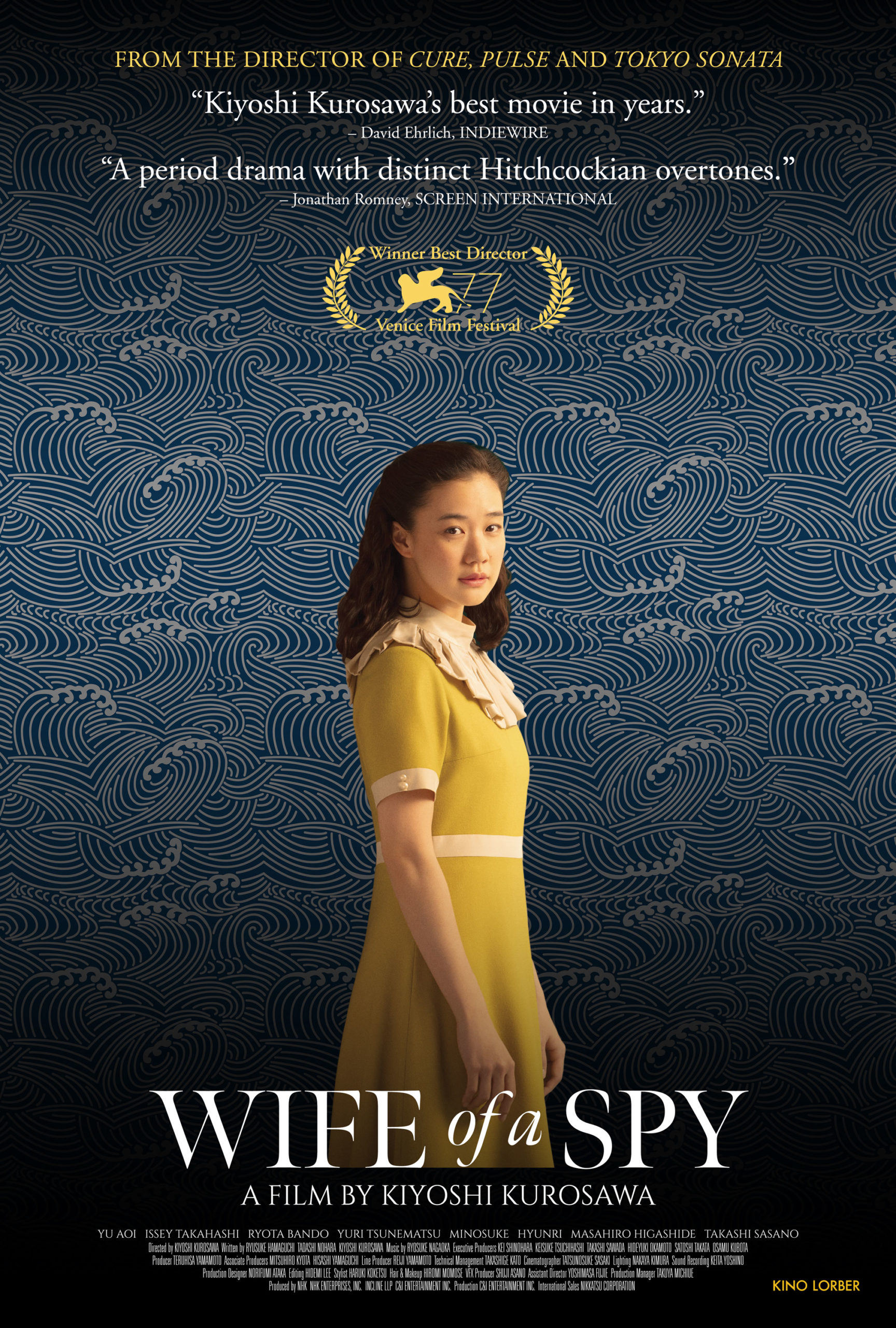
17 Sep Wife of a Spy Review
WIFE OF A SPY
dir. Kiyoshi Kurosawa starring Yū Aoi and Issey Takahashi
Wife of a Spy, a historical drama set in Japan during the early days of World War II, centers on Yū Aoi as Satoko Fukuhara, the wife of a businessman (Takahashi) whom she slowly suspects may be a spy for the United States. Be warned, if you’re looking for a tense, taught thriller that showcases the art of spycraft, intrigue, and narrow escapes, Wife of a Spy is not that. Instead, it’s a solid character driven film devoid of any bombast or spectacle. The film takes its time letting the audience get to know the characters before upending Satoko’s happiness, plunging her into a world of lies and deceit.
As Satoko is slowly drawn in to Yūsaku’s world, her transition from timidity to confidence is almost immediate, making game-changing decisions that forces Yūsaku to include her into his plans. Hunting the couple is Masahiro Higashide as Taiji, an ambitious and recently promoted member of military police. Taiji, a childhood friend of Satoko, brings the tension to the film as his affections for Yūsaku’s wife make for source of emotional conflict for Satoko. While not on screen often, Higashide plays the brooding, power hungry officer well, and shines in his final confrontation with Aoi. The final resolution is painful and melancholic as audiences are taken through the ride of 1940s Japan to settle at the final days of the war.
Starring Yū Aoi and Issey Takahashi, Wife of a Spy’s main strength lies in its acting. Issey Takahashi’s relaxed, almost informal body language conveys a sense of confidence, of self assuredness in the actions he’s taking against his home country. Takahashi is equal parts charming and affable as he moves through the film, interacting with businessmen and officers of the law alike in an easy manner that almost appears effortless. It’s this disarming nature that beguiles both the characters and us the audience, and it’s only when Yūsaku’s plans are fully revealed that we realize just how calculating Yūsaku has been the entire time.
Still, for all of Takahashi and Higashihde’s prowess, the star of the film is Yū Aoi as the titular spy’s wife. Aoi’s transition from happy housewife to woman of conviction to something entirely different by the movie’s end is played masterfully by Aoi as Satoko navigates through the twists and turns of the story. Alternating between ignorance, anger, fear, and confidence, Aoi employs a full acting clinic as she carries the film.
Directed by Kiyoshi Kurosawa, Wife of a Spy burns slow, but never manages to bore. Within its 115 minute runtime, Kurosawa has created a world of 1940s Japan littered with possible friends and possible foes. Never explicitly stating who the Fukuharas can and can’t trust, the audience is left just as wary as the characters are in their decision making. Kurosawa bring a realistic feel to the movie, choosing to use natural light often to illuminate his characters, helping to lend credence to the period piece. The almost Hitchcockian feel of the film is expertly handled by the veteran director, and while the Wife of a Spy never quite reaches the level of thrills that say Rear Window or Vertigo provide, it still manages to craft a solid story featuring hidden motivations and crisis of identity.
Overall, Wife of a Spy is a competent thriller that manages to keep the audience engaged and guessing throughout. Thanks to a shocking third act twist that’s sure to catch viewers off their guard, the film is elevated from standard spy fare to something deeper and more appreciative of the subgenre. More focused on the themes of strong relationship ties and national pride than on espionage, Kurosawa’s movie is clever in its approach to the story, choosing to stay focused on Satoko and her desires over Yūsaku’s scheming. Strong performances from Yū Aoi and Issey Takahashi, as well as the direction from Kiyoshi Kurosawa combine to place it on a list of worthy must-see movies of 2021. Wife of a Spy hits theaters in a limited release September 17th in New York and September 24th in Los Angeles.
Review by Darryl Mansel


No Comments